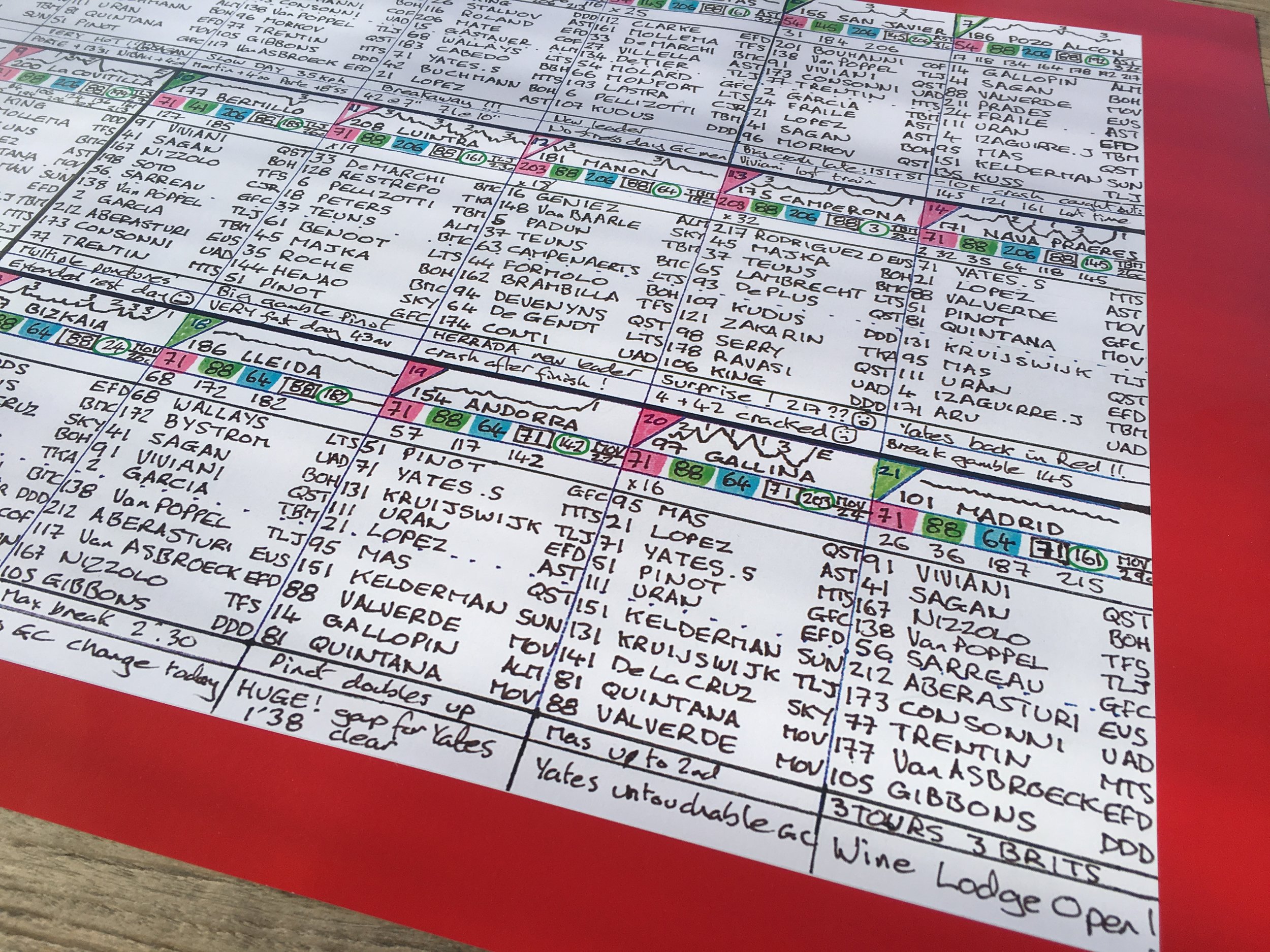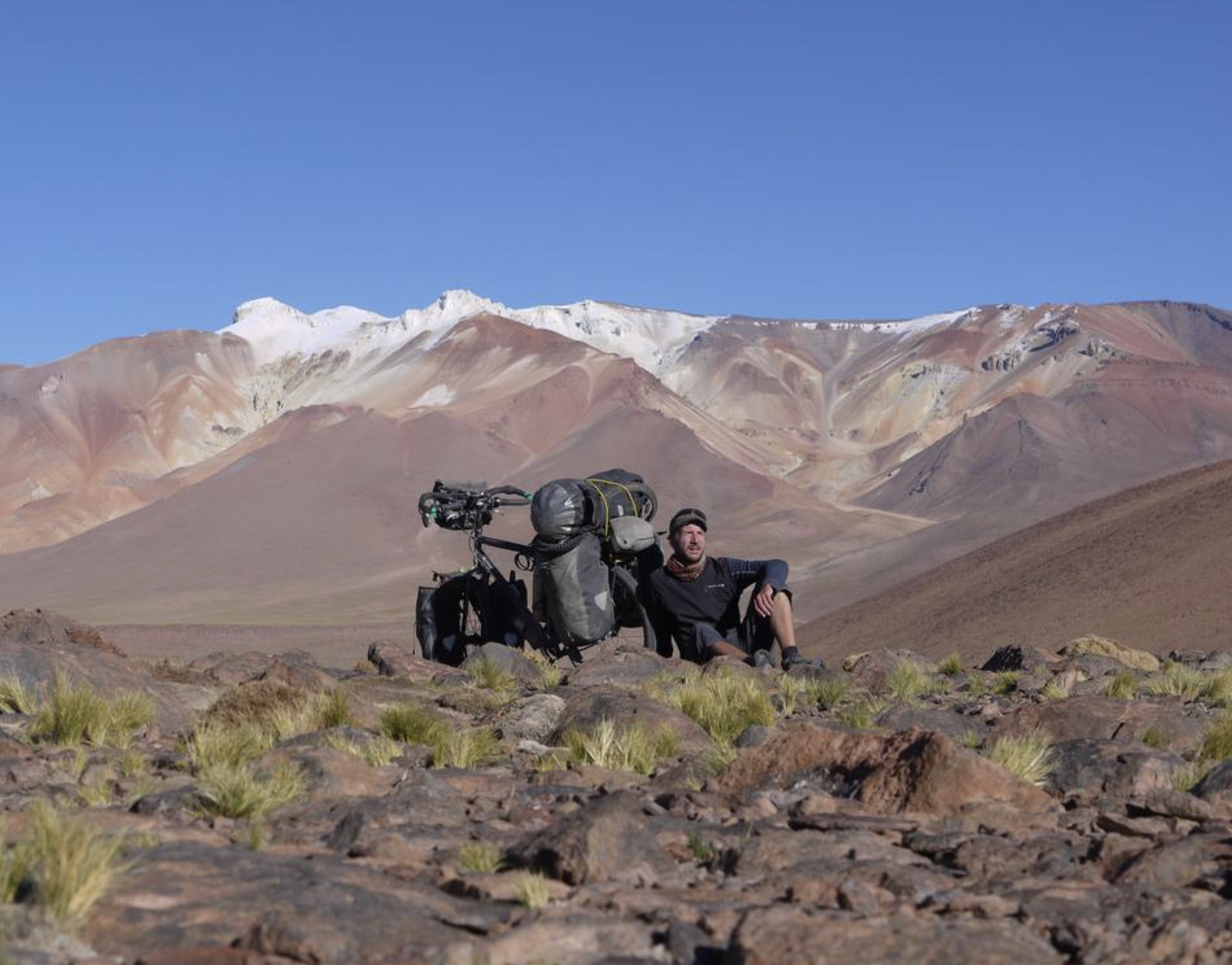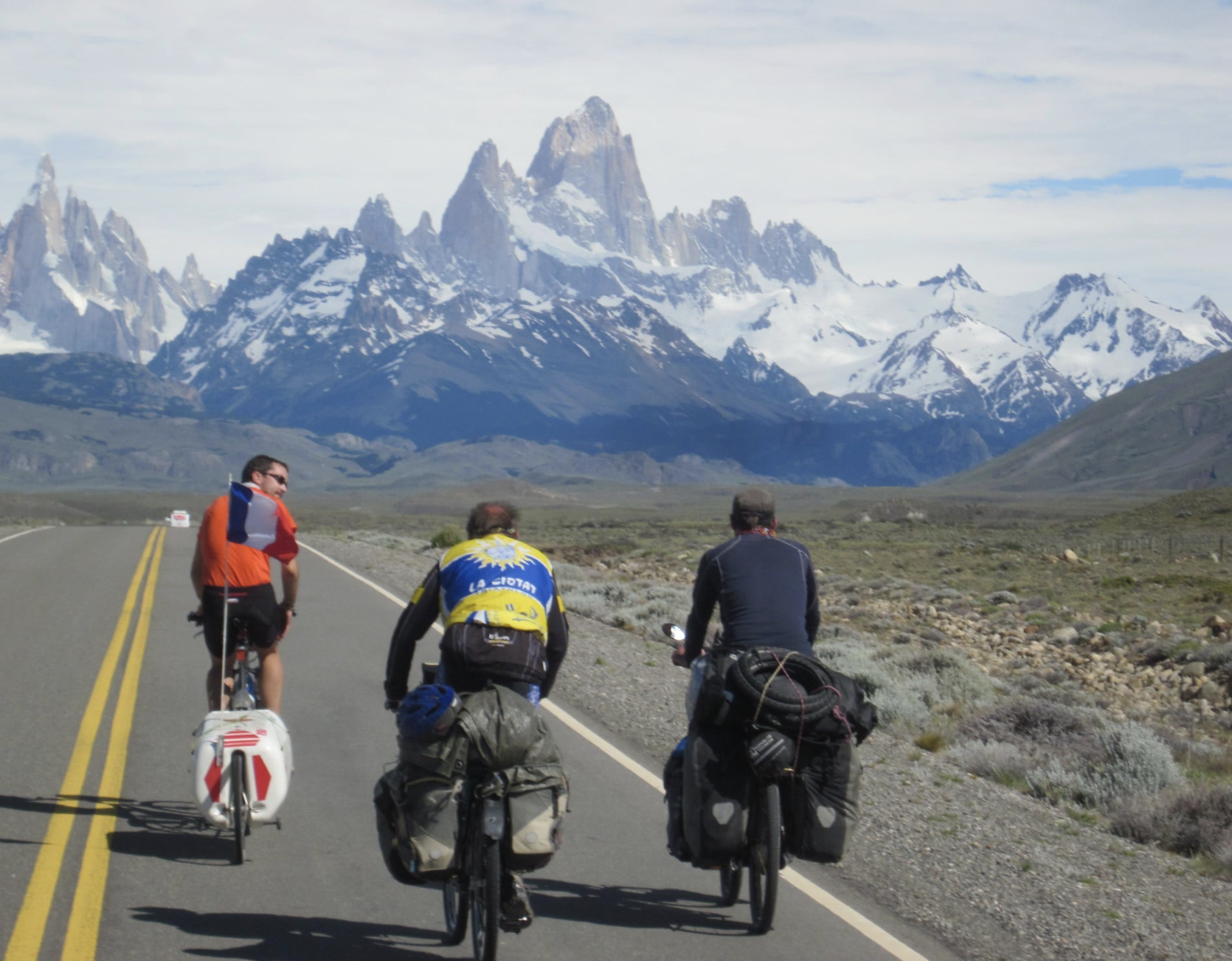By Robbie Broughton
When junior doctor Stephen Fabes set off on a round-the world adventure he wasn’t exactly best prepared. In fact, so out-of-shape was he, that the first leg of his journey consisted of a paltry 14 miles from London's Embankment to a guesthouse in Bexleyheath. Six years later he’d succeeded in crossing six continents and tallying an impressive 53,568 miles of bicycle travel. Signs of Life, To the Ends of the Earth with a Doctor is his book documenting that extraordinary feat.
What is it that makes people give up their lives and careers to pursue such a journey? Fabes’s wanderlust was ignited when he set off to cycle the length of Chile for five months before he began his medical degree. Some 10 years later and now working as a doctor at Guy’s and St Thomas’s he describes how he had a “rapturous pining for more, but it’s a more that can’t be easily described or defined. I needed more of almost everything, more space, more time, more risk: more adventure too, because I sensed it would make me in some way, rewire me, revise my sense of the world.” In retrospect he says he was simply longing for a less certain future. “And uncertainty, whether in life or bike rides, is the heart and soul of any journey.”
The beginning of Fabes´s journey didn´t exactly presage well because, as well as being unfit, he set off just as Europe was experiencing a deep freeze more akin to the climate of northern Alaska than the southern counties of England. Pelted by snowballs from children enjoying a day off school as he struggled through ice and snow he eventually made it across the channel and across Europe. But it all came to an ignominious end by the time he got to Turkey and realised he needed surgery on his knee. He had to hitch hike back to the UK and it would be some time before he could resume his trip.
But resume it he did: from London to Cape Town, Ushuaia to Alaska, Melbourne to Mumbai, and finally Hong Kong to Calais. The book is divided into these chapters and further split with titles reflecting Fabes´s medical background - ´Fever´, ´Pulse´, ´Membranes´ and ´Dislocated´ for instance. Throughout he shows incredible fortitude to survive discomfort, at times boredom and real danger.
This book is much more than a simple recount of his travels although there are the inevitable travelling adventures of insect-infested tents, the hospitality of strangers, illness, joy, depressions, floods, avalanches and mechanical failures. Fabes also looks back on the grim experiences of an NHS doctor, while offering existential musings and profound reflections on the state and inequality of healthcare in the regions he passes through. It’s this inequality that has the deepest effect on him whether it’s the treatment of lepers, TB sufferers or HIV patients and he rails against the injustice of it all throughout, at times maddened, at others saddened by what he sees.
He´s a well-read chap and his prose is peppered with references to medical journals, adventurers from years gone by, historians, philosophers, poets and novelists. Standby for quotes from Camus, Orwell, Russell, Nabokov, Proust and Foucault. If all this sounds heavy the tone is lightened by a self-deprecating and humorous take on his experiences which is laugh-out-loud in places.
Fabes reveals in his acknowledgments that he was persuaded to cut out a fair bit of material that told of his fellow travellers that he met on the way which seems a shame as he is at his most engaging when writing about them. His meeting with Heinz Stücke, described as “the world’s most dedicated cycling vagabond” having spent an incredible 51 years cycling 650,000 kilometres around the planet, is a fascinating chapter where he describes an extraordinary evening where the two intrepid adventurers meet, both joined by their experiences and separated by opposing views on life, politics and philosophy.
The question of what motivates the likes of Fabes to embark on such an adventure is logically followed up by another: how do they re-adjust to a normal life at the end of it all? The closing couple of chapters describe the challenges of easing back into an everyday humdrum life devoid of the uncertainties that he sought to embrace at the beginning.
Initially he moves back into the Oxford suburban home of his childhood where he reverts to a teenage-like existence in his bedroom and is led round department stores by his mother for new clothes. His re-integration is described as “rehab” and he eventually tries to find as much variety in life as possible by taking on jobs in two hospitals across three different specialties, joins four dating apps and five different running clubs. Running, in fact, was to become his new obsession and he now completes marathons in well under three hours. It seems that his initial need for “more” hasn’t dissipated at all but rather than interminably criss-crossing the world like Heinz Stücke did, he has found a way to exist in our ordinary society.
He continues to work as an NHS doctor as well as writing for a variety of prestigious publications. I’d highly recommend his blog where he writes about cycling, running, medical matters and more in the same lively, funny and engaging way as his book. Signs of Life is fascinating, thought-provoking, humorous, maddening, entertaining and thoroughly enjoyable. Above all it is so refreshing to read a round-the-world tale that offers more than the stories of an intrepid adventurer, but is a window into the heart , mind and soul of a profound character trying to grapple with the complexities of the world we live in.
(All photos courtesy of Stephen Fabes)






































